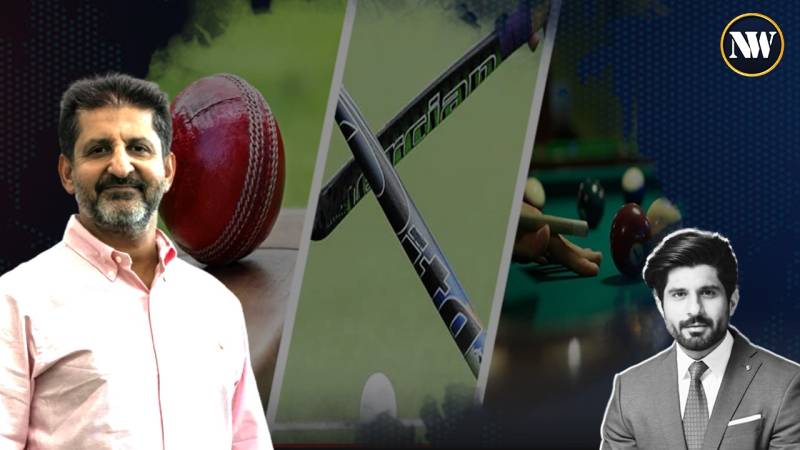The current abysmal state of Pakistan’s sports industry was not always a reality. Pakistan has had its
fair share of triumphs in varying sporting categories, with legends, such as Jahangir Khan, Shahbaz
Ahmad, and Wasim Akram, maintaining the country’s position in the athletic hierarchy. However,
vulnerability caused by weakening governance, deteriorating law and order situations, and most
recently, the volatility of global political relations between Pakistan and India have all rendered the
country’s sports infrastructure fractured and defective.
Former Managing Director of the Pakistan Super League (PSL) Salman Sarwar Butt sits with
Nauraiz Rana, Economist at the World Bank, to discuss the causes of the diminishing sports
infrastructure in Pakistan and what steps need to be taken to help resuscitate it. Salman walks us
through the legacies of Pakistan’s sporting greats like Jahangir Khan, while Nauraiz analyzes the
success of Neeraj Chopra in comparison to Arshad Nadeem. Javelin throwers from either side of
the border, Arshad Nadeem and Neeraj Chopra both contested in the 2021 Tokyo Olympics and
qualified for the final of the men’s javelin throw event. However, while the Indian flag bearer was
rewarded with brand endorsements from companies with the likes of Under Armour and
Gatorade, Arshad Nadeem’s father complained that his son, the first Pakistani athlete to ever
qualify for the track and field events at the Olympics, was largely neglected.
In answering why the otherwise encouraging factors, such as the youth bulge in Pakistan do not
lead to an increase in sports participation or facilities that host the youth to explore their athletic
capabilities- Salman Butt held that a lack of government proactiveness and ability to attach
economic importance to the sports industry was a central reason for this gap. World Bank
Economist Nauraiz Rana, further provides interesting anecdotes that build on this theme of
government neglect of sports. Rana recalls his time as a young and budding sportsman and the
factors that led him to ultimately give up on a potential sports career. In his conversation, Salman reiterates the necessity of factoring in the financial aspect of sports, claiming that it is an essential
component that ensures the initial sustainability of any activity. He elaborates on the effectiveness
of marquee events in creating a healthy ecosystem that would direct the Pakistani society towards
consistent sports participation. Building on his experiences in the World Bank, Nauraiz argues that
although there has been a global shift away from reliance on state mandated industrial growth,
there are lessons to be learnt from neighboring countries. He effectively states that Pakistan must
acknowledge the economic benefits that associating export value with sports has.
The impact of a booming sports industry on the country’s soft image is also discussed. The pair
explored how promoting sports events can effectively work as a nation's overall diplomacy and
global engagement strategy. For instance, sports have the potential to capture public attention and
generate widespread interest. By hosting international tournaments or participating in high-profile
sporting events, a country can engage with a global audience and showcase its capabilities,
infrastructure, hospitality, and organizational skills. This positive exposure can shape public
perception and enhance a country's soft power. Moreover, sporting events offer an opportunity for
a country to project positive attributes such as teamwork, fair play, discipline, and perseverance.
These qualities can be associated with the country's overall values and governance, creating a
positive image. A nation that exhibits sporting success and upholds these values can be seen as an
attractive partner in global politics.
On the magnanimous commercial success of the Pakistan Supreme League, Salman Butt elaborately
explains why he holds more optimism for the private sector in Pakistan with regards to investing in
grass roots sports events than he does in the government. He shares an interesting anecdote of
meeting with the Honorable President of the country, but reiterates that without political stability,
state institutions remain weak in their efforts to promote sports events and activities.
In his concluding note, Salman Sarwar Butt reassures us of the power of muscle memory, stating
that Pakistan’s successful history in Squash and Hockey will act as a catalyst in encouraging the
youth to partake and excel in both these sports. He reminds us, however, that the efforts must begin
today!

